
 TECHSPEC® components are designed, specified, or manufactured by Edmund Optics. Learn More
TECHSPEC® components are designed, specified, or manufactured by Edmund Optics. Learn More
Les Lentilles Plan-Convexes (PCX) en Silice Fondue UV Traitées MgF<sub>2</sub> TECHSPEC® présentent des spécifications de précision et une variété d'options de traitement sur un substrat à large bande. La silice fondue est couramment utilisée dans des applications allant de l'ultraviolet (UV) au proche infrarouge (NIR). Son faible indice de réfraction, son faible coefficient de dilatation thermique et sa faible teneur en inclusions la rendent idéale pour les applications laser et les conditions environnementales difficiles. Les Lentilles Plan-Convexes (PCX) en Silice Fondue UV Traitées MgF<sub>2</sub> TECHSPEC® présentent des spécifications de centrage et de diamètre à la pointe de l'industrie, ce qui les rend idéales pour l'intégration dans des applications d'imagerie et de mesure exigeantes. Ces lentilles sont traitées AR avec du MgF2 pour augmenter les performances dans la gamme VIS.
| FUSED SILICA | |
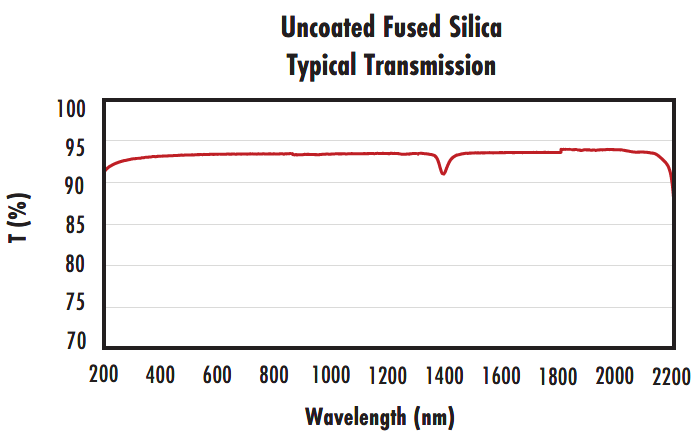 |
Typical transmission of an uncoated fused silica window across the UV - NIR spectra. |
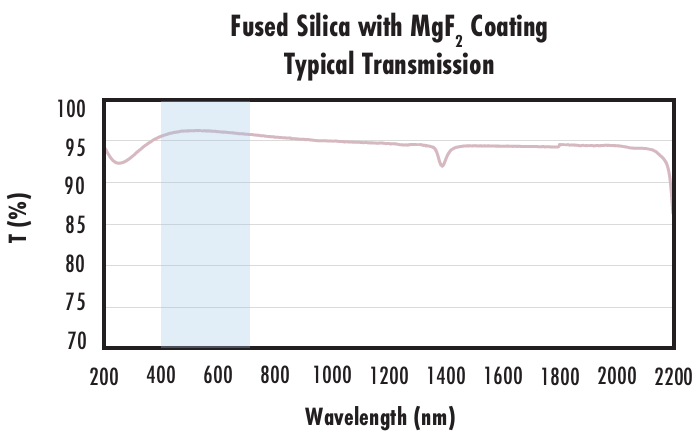 |
Typical transmission of a fused silica window with MgF2 (400-700nm) coating at 0° AOI. The blue shaded region indicates the coating design wavelengh range, with the following specification: Ravg ≤ 1.75% @ 400 - 700nm (N-BK7) Data outside this range is not guaranteed and is for reference only. |
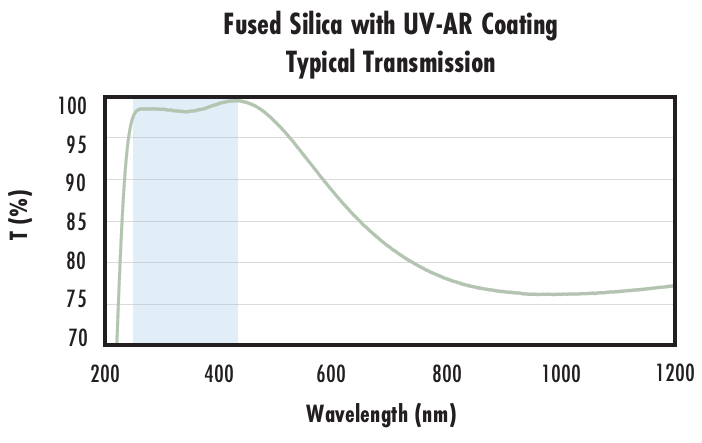 |
Typical transmission of a fused silica window with UV-AR (250-425nm) coating at 0° AOI. The blue shaded region indicates the coating design wavelengh range, with the following specification: Rabs ≤ 1.0% @ 250 - 425nm Data outside this range is not guaranteed and is for reference only. |
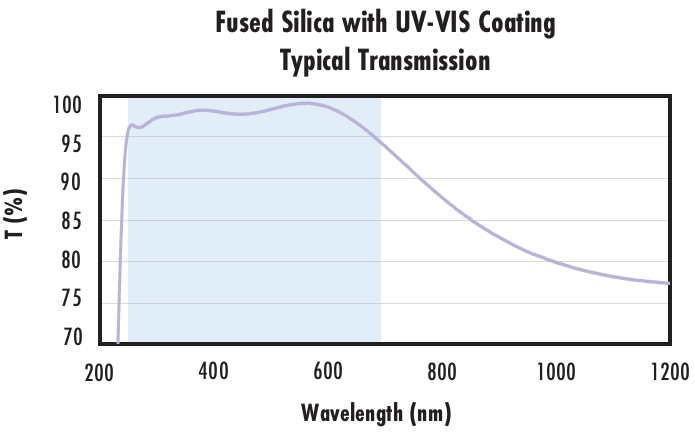 |
Typical transmission of a fused silica window with UV-VIS (250-700nm) coating at 0° AOI. The blue shaded region indicates the coating design wavelengh range, with the following specification: Rabs ≤ 1.0% @ 350 - 450nm Data outside this range is not guaranteed and is for reference only. |
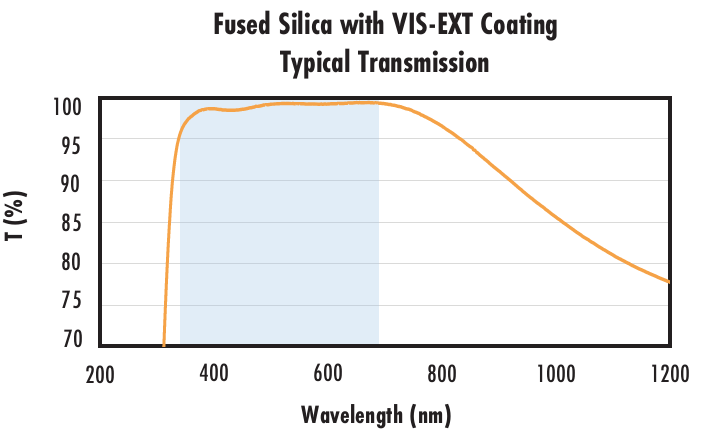 |
Typical transmission of a fused silica window with VIS-EXT (350-700nm) coating at 0° AOI. The blue shaded region indicates the coating design wavelengh range, with the following specification: Ravg ≤ 0.5% @ 350 - 700nm Data outside this range is not guaranteed and is for reference only. |
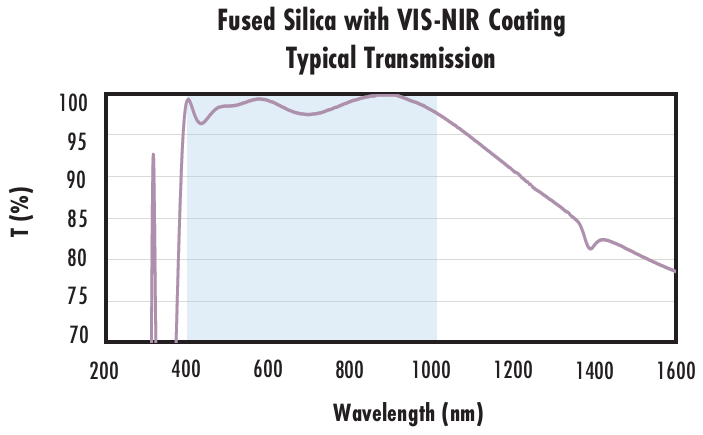 |
Typical transmission of a fused silica window with VIS-NIR (400-1000nm) coating at 0° AOI. The blue shaded region indicates the coating design wavelengh range, with the following specification: Rabs ≤ 0.25% @ 880nm Data outside this range is not guaranteed and is for reference only. |
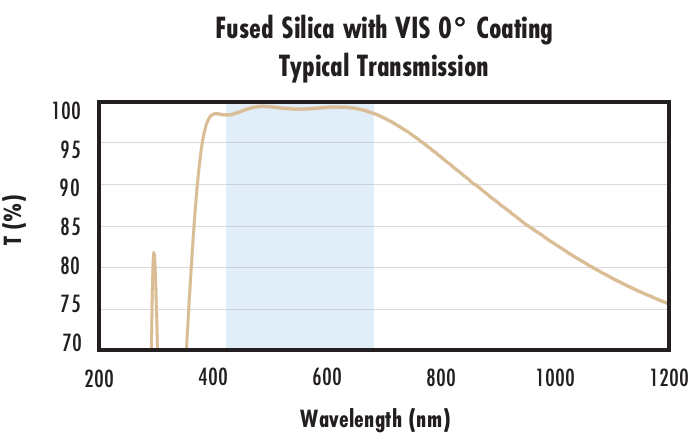 |
Typical transmission of a fused silica window with VIS 0° (425-675nm) coating at 0° AOI. The blue shaded region indicates the coating design wavelengh range, with the following specification: Ravg ≤ 0.4% @ 425 - 675nm Data outside this range is not guaranteed and is for reference only. |
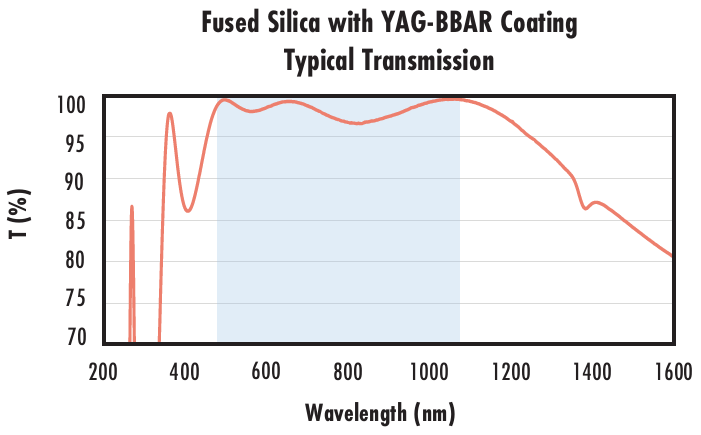 |
Typical transmission of a fused silica window with YAG-BBAR (500-1100nm) coating at 0° AOI. The blue shaded region indicates the coating design wavelengh range, with the following specification: Rabs ≤ 0.25% @ 532nm Data outside this range is not guaranteed and is for reference only. |
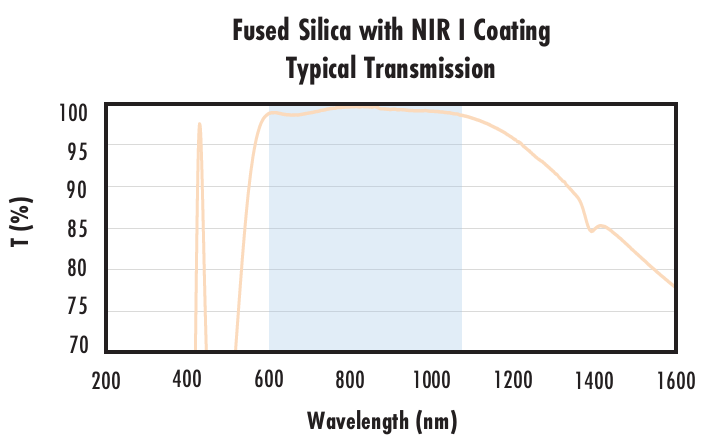 |
Typical transmission of a fused silica window with NIR I (600 - 1050nm) coating at 0° AOI. The blue shaded region indicates the coating design wavelengh range, with the following specification: Ravg ≤ 0.5% @ 600 - 1050nm Data outside this range is not guaranteed and is for reference only. |
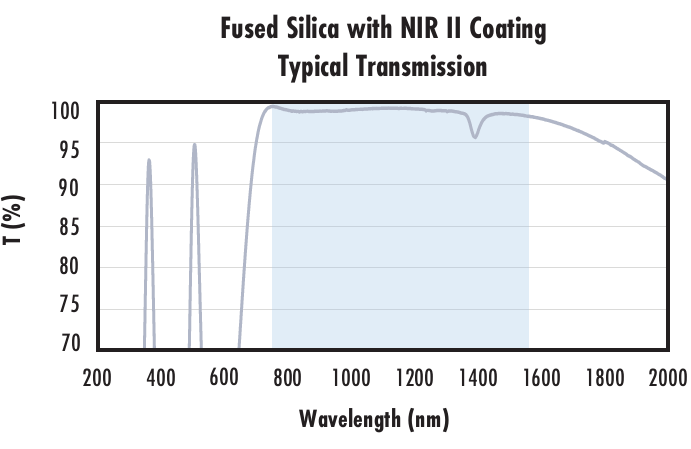 |
Typical transmission of a fused silica window with NIR II (750 - 1550nm) coating at 0° AOI. The blue shaded region indicates the coating design wavelengh range, with the following specification: Rabs ≤ 1.5% @ 750 - 800nm Data outside this range is not guaranteed and is for reference only. |
ou consulter les numéros d’autres pays
facile à utiliser
entrer les numéros de stock pour commencer
Copyright 2023 | Edmund Optics, Ltd Unit 1, Opus Avenue, Nether Poppleton, York, YO26 6BL, UK
L'entreprise Edmund Optics GmbH en Allemagne agit comme un mandataire d'Edmund Optics Ltd au Royaume-Uni. Le titulaire du contrat est Edmund Optics Ltd au Royaume-Uni.